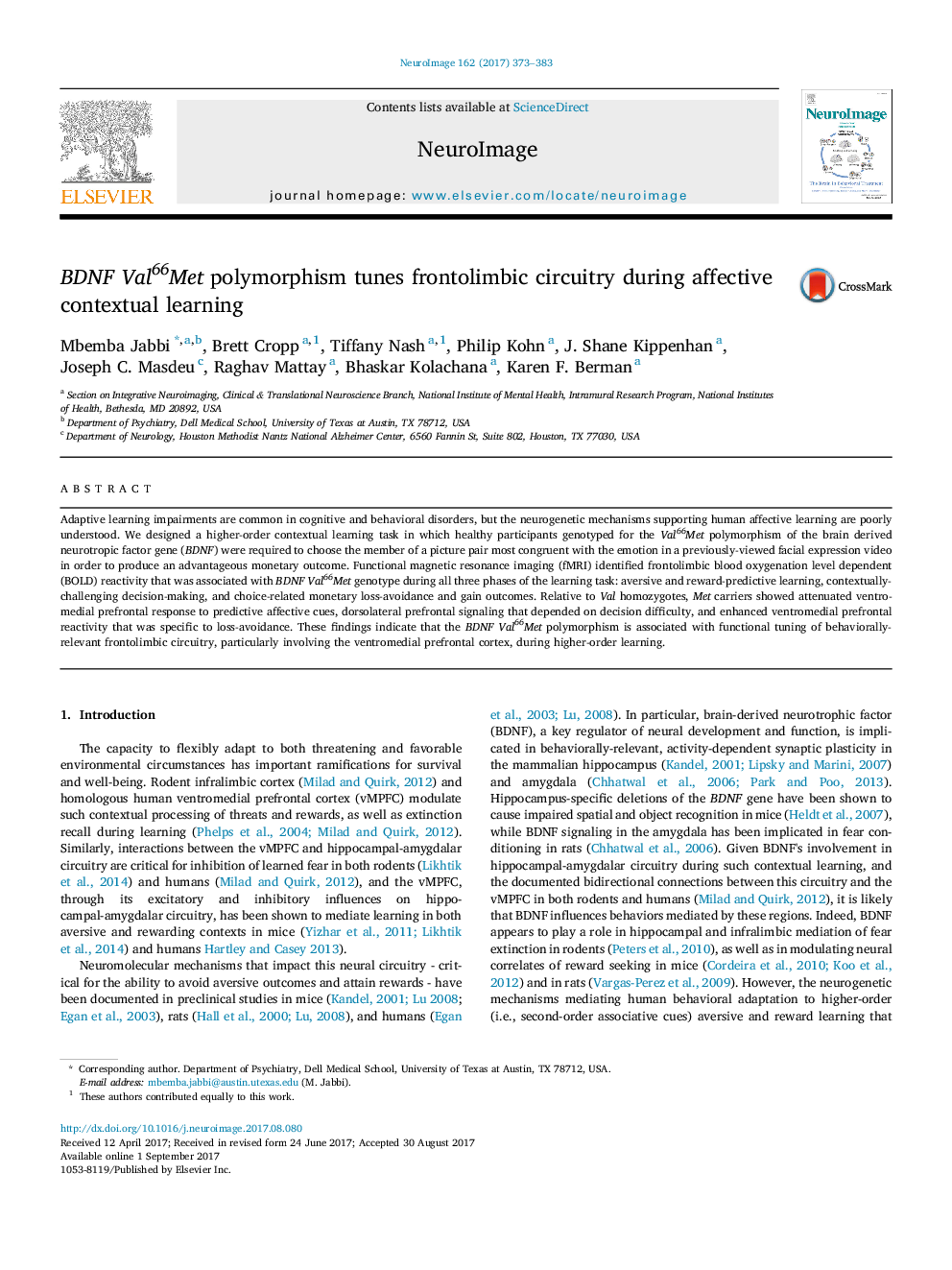| کد مقاله | کد نشریه | سال انتشار | مقاله انگلیسی | نسخه تمام متن |
|---|---|---|---|---|
| 5630776 | 1580848 | 2017 | 11 صفحه PDF | دانلود رایگان |

- fMRI BOLD identifies a genetic signature for adaptive learning.
- BDNF Val66Met genotype tuned prefrontal BOLD signals were context specific.
- BDNF mediated vMPFC BOLD was predominant for predictive affective and outcome.cues.
- BDNF influenced DLPFC activity during decision-making was affected by load.
- Magnitude of vMPFC response to outcomes correlated with performance.
Adaptive learning impairments are common in cognitive and behavioral disorders, but the neurogenetic mechanisms supporting human affective learning are poorly understood. We designed a higher-order contextual learning task in which healthy participants genotyped for the Val66Met polymorphism of the brain derived neurotropic factor gene (BDNF) were required to choose the member of a picture pair most congruent with the emotion in a previously-viewed facial expression video in order to produce an advantageous monetary outcome. Functional magnetic resonance imaging (fMRI) identified frontolimbic blood oxygenation level dependent (BOLD) reactivity that was associated with BDNF Val66Met genotype during all three phases of the learning task: aversive and reward-predictive learning, contextually-challenging decision-making, and choice-related monetary loss-avoidance and gain outcomes. Relative to Val homozygotes, Met carriers showed attenuated ventromedial prefrontal response to predictive affective cues, dorsolateral prefrontal signaling that depended on decision difficulty, and enhanced ventromedial prefrontal reactivity that was specific to loss-avoidance. These findings indicate that the BDNF Val66Met polymorphism is associated with functional tuning of behaviorally-relevant frontolimbic circuitry, particularly involving the ventromedial prefrontal cortex, during higher-order learning.
Journal: NeuroImage - Volume 162, 15 November 2017, Pages 373-383